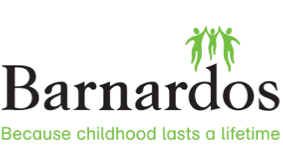Barnardos calls for the implementation of a trauma informed approach to future responses to institutional abuse in the wake of the RTE documentary, Redress: Breaking the Silence.
Dublin, 4 March 2020 – Barnardos calls for the implementation of a trauma informed approach to future responses to institutional abuse in the wake of the RTE documentary, Redress: Breaking the Silence.
Suzanne Connolly, Barnardos CEO, said: “Over the past two nights we saw the incredible bravery and dignity of survivors of religious institutions who retold their story for RTE’s Redress: Breaking the Silence documentary. An unforgettable message of the programme was the lack of a trauma informed approach to dealing with historic child abuse which has led to the further re-traumatisation of survivors. For almost two decades Barnardos Origins Service has supported former residents in tracing their families and in understanding the circumstances of their admission to these institutions.
“Those interviewed in the programme conveyed the horrific nature of the abuse they were subjected to by adults who should have been treating them with care and nurture. The State recognised the wrong-doing inflicted on vulnerable children through an apology, a Commission of Inquiry and the subsequent establishment of a Redress Board. However, the way in which this response was implemented caused further damage, hurt and outrage. The system has protected the abusers – who have remained faceless.
“By adopting a trauma informed approach, those tasked with delivering redress would recognise the needs of individuals who have experienced trauma, the signs and symptoms of trauma and how to adequately respond to these needs. An individualised, empathetic and nurturing response is needed, rather than the adversarial and legalistic response which was clearly evident in the programme.
“While the impact of such a childhood abuse is never gone, people can be helped to heal with the appropriate services. The intergenerational effect of the survivors’ childhood trauma was also apparent with the impact, not just on survivors, but on their children clearly evident. Services of support must address these inter-generational adversities.
“Systems don’t care, people care and if people don’t care, systems fail. There are still mechanisms of redress to be implemented with regard to the Mother and Baby homes and these should be trauma informed”.
ENDS
Notes to Editors:
For former residents of the Industrial Schools, Barnardos Origins service provides assistance in tracing family and in understanding the circumstances of their admission to the schools.
The service is fully funded by the Department of Education and is available both to new clients and to those who have had contact with the service before.
http://staging.barnardos.ie/our-services/origins-service
For further information, please contact:
Barnardos Press Office: 01 7080442 / 086 0445966
Rachel Boyce; 01 7080443
Trudy McCarthy; 01 7080423
